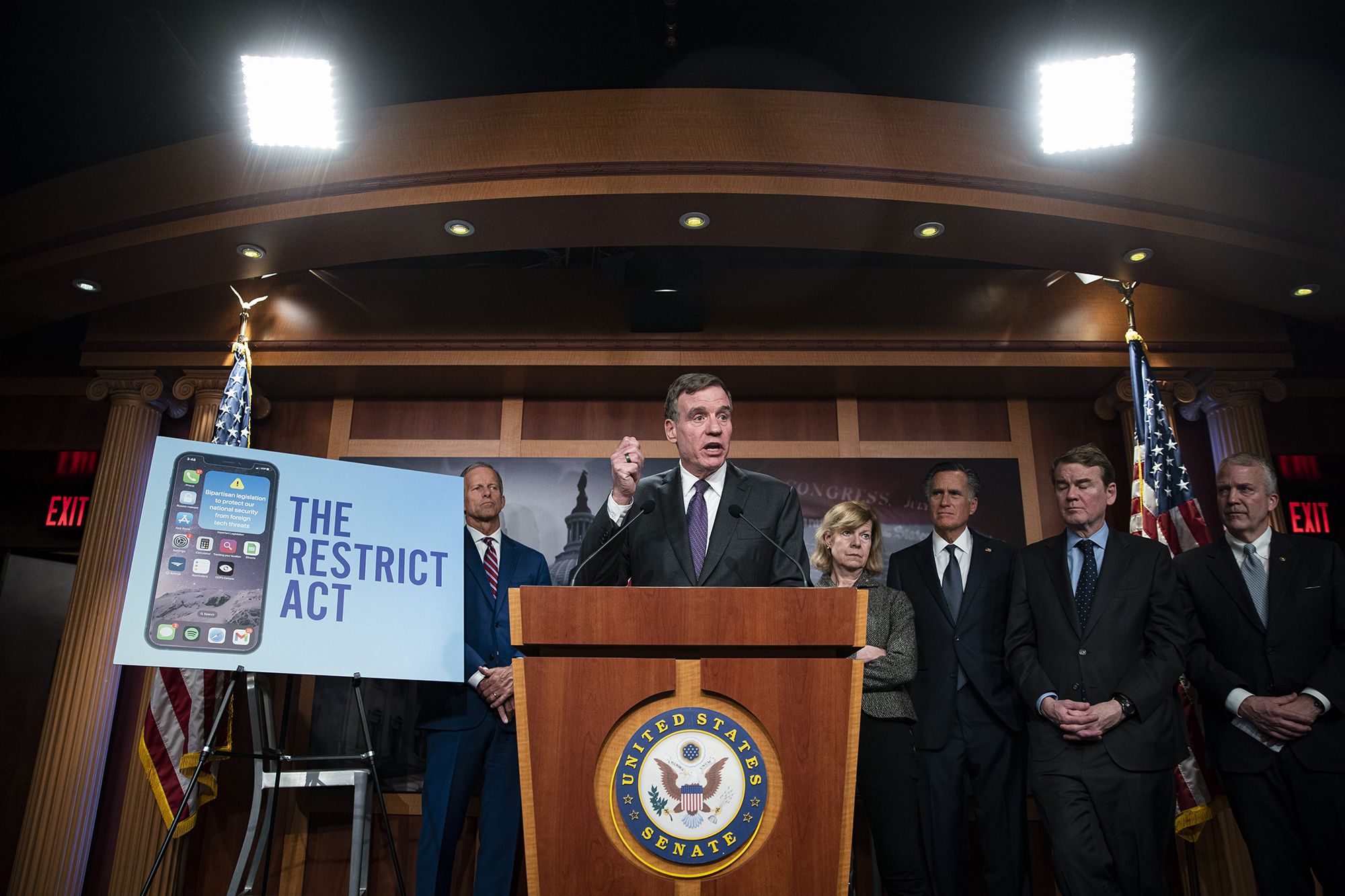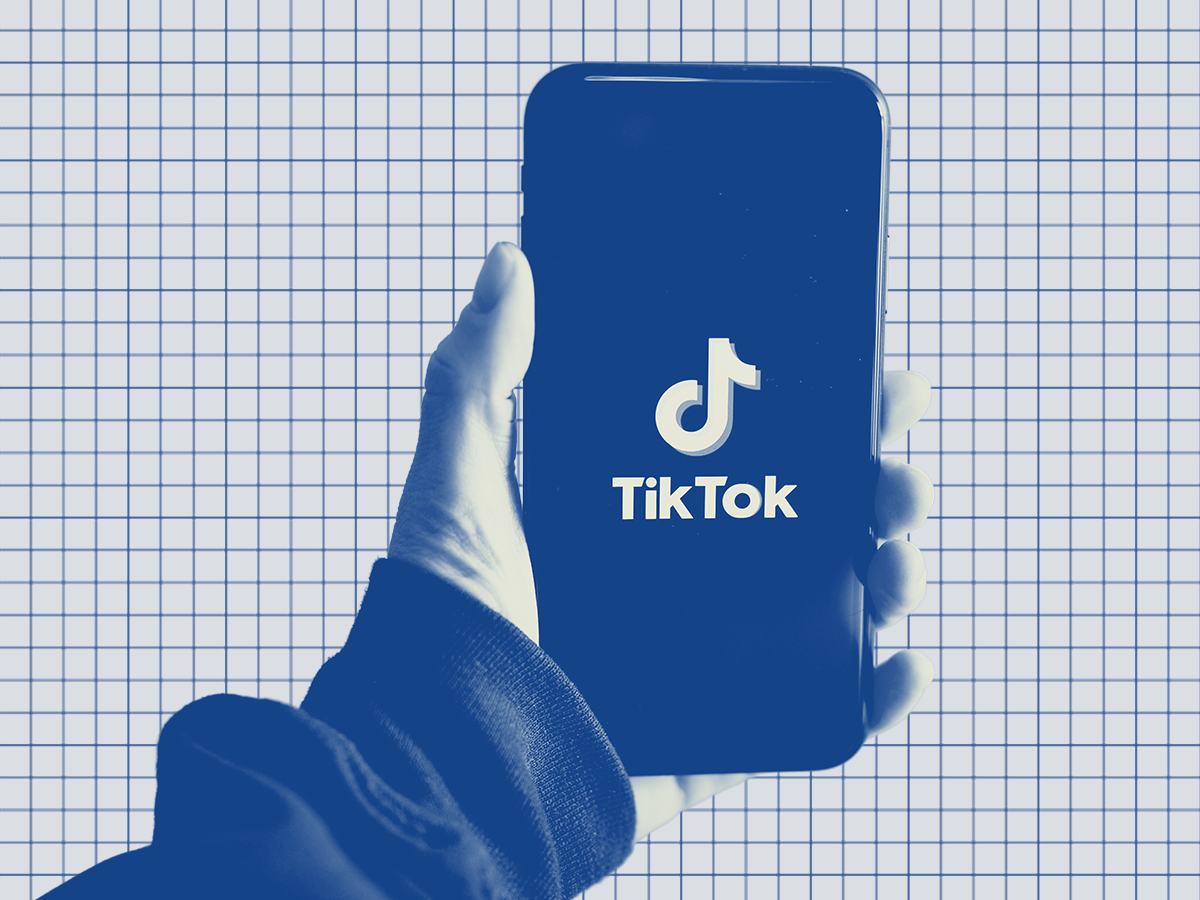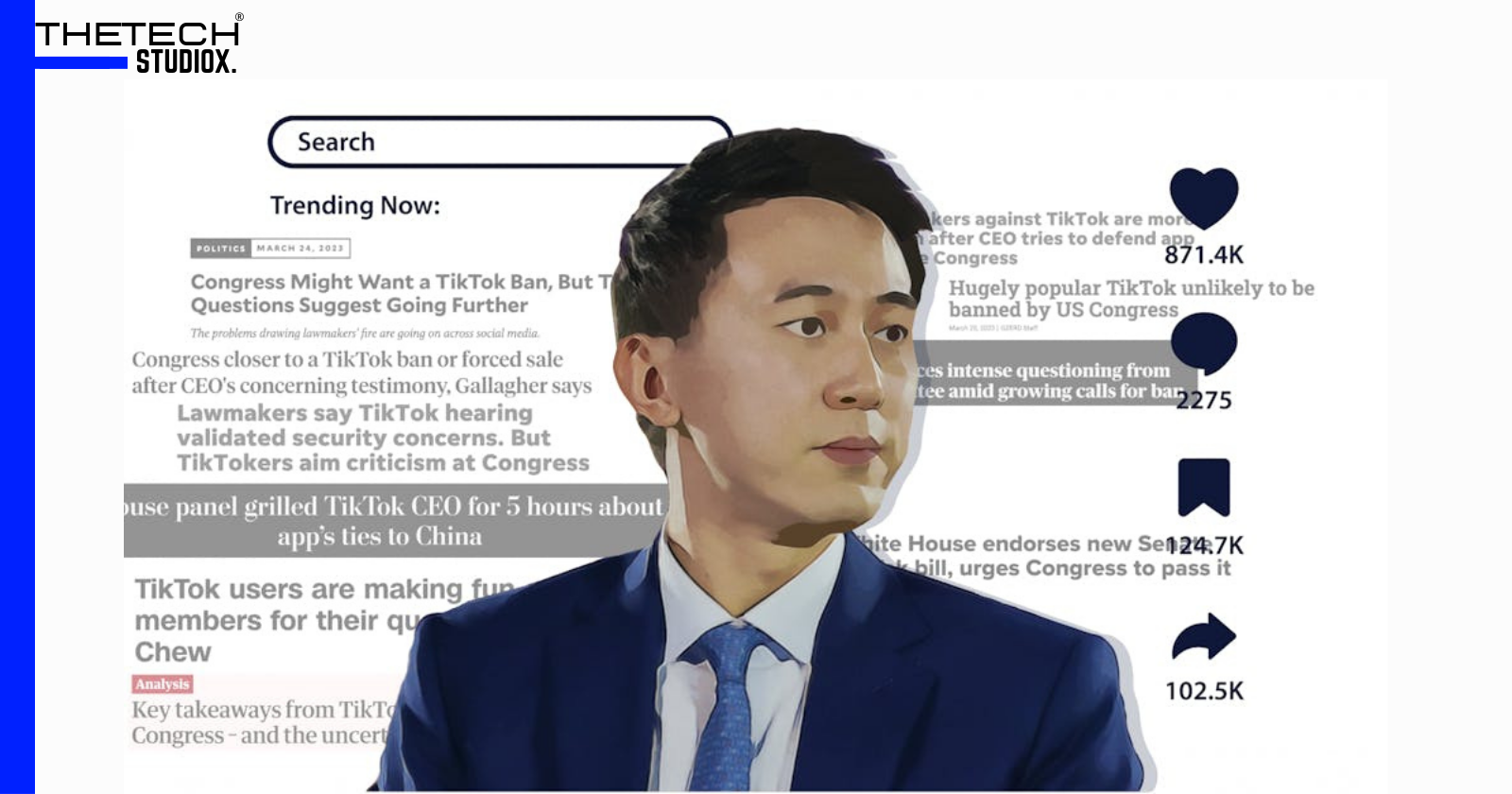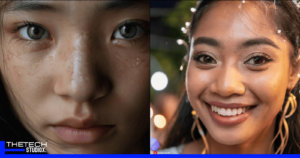Table of Contents
Introduction to TikTok national security bill
The landscape of social media is facing a seismic shift with the introduction of the Protecting Americans from Foreign Adversary Controlled Applications Act. Spearheaded by Rep. Mike Gallagher and Rep. Raja Krishnamoorthi, this bipartisan effort targets national security concerns stemming from TikTok’s ownership by the Chinese tech giant, ByteDance.
Key Provisions of the Bill

Restriction on Distribution: the Core Mechanism of National Security Control
At the heart of the Protecting Americans from Foreign Adversary Controlled Applications Act lies a pivotal mechanism – the restriction on the distribution of applications controlled by entities like ByteDance. This intricate web of regulatory measures aims to redefine the landscape of social media platforms operating in the United States, placing stringent controls on their distribution, accessibility, and ownership structures.
Prohibiting App Stores and Hosting Services
The linchpin of this mechanism is a prohibition that extends to app stores and web hosting services. The legislation mandates that these digital marketplaces and service providers refrain from distributing applications that fall under the purview of companies with ties to foreign adversaries, exemplified by ByteDance in the current context. This broad-reaching prohibition is designed to act as a gatekeeper, controlling the entry points through which potentially compromised applications can infiltrate the devices of U.S. users.
Civil Penalties for Non-Compliance
To enforce compliance, the legislation introduces a significant deterrent – civil penalties. App stores found in violation of the distribution restrictions face monetary penalties calculated at $5,000 per U.S. user accessing the app. This financial repercussion is intended to incentivize stringent adherence to the regulatory framework, creating a tangible cost for non-compliance that app stores cannot afford to overlook. The calculated penalty not only imposes financial consequences but also scales proportionally with the reach of the application, amplifying the stakes for major social media platforms.
Timeframe for Divestment
Adding an element of urgency to the regulatory landscape, the legislation stipulates a timeframe for divestment. ByteDance, the primary target in this instance, is granted a specific window – 165 days. This window serves as the critical period during which the company must sever ties with Chinese ownership to evade the civil penalties imposed by the legislation. The timeframe is calibrated to strike a balance, offering sufficient opportunity for compliance while underlining the pressing need for expeditious action.
Strategic Isolation to Ensure Compliance
Beyond penalties and time constraints, the essence of the restriction on distribution is rooted in strategic isolation. The legislation mandates the isolation of applications from entities with foreign adversaries’ ties, ensuring that they are not readily available for download or use within the U.S. digital space. This strategic isolation aims to create a digital barrier, impeding the potential infiltration of applications that may compromise national security or infringe on user privacy.
Balancing National Security and Technological Accessibility
While the restriction on distribution is undeniably stringent, it also triggers a broader conversation about balancing national security imperatives with the principles of technological accessibility. The challenge lies in ensuring that the regulatory measures do not inadvertently hinder the legitimate use of applications by the broader public. Striking this delicate balance is crucial to upholding both security and the free and open exchange of information that defines the essence of the digital age.
President’s Authority
Central to the Protecting Americans from Foreign Adversary Controlled Applications Act is the provision granting the President authority to designate social media companies from countries deemed foreign adversaries. This authority introduces a dynamic layer to the legislation, offering a flexible and responsive mechanism to address emerging threats in the realm of national security.
Targeted Countries and Designation Criteria
The legislation outlines a strategic framework that empowers the President to identify social media companies hailing from countries considered foreign adversaries. These targeted nations, including but not limited to China, Russia, Iran, and North Korea, represent entities whose operations in the U.S. are viewed through the lens of potential national security risks. The designation criteria, though not explicitly outlined, is expected to be rooted in an assessment of the geopolitical landscape and potential threats posed by the foreign companies.
Similar Restrictions and Implications
Once a social media company from a designated country is identified, the legislation imposes restrictions mirroring those applied to ByteDance. The company would be required to sever ties with entities controlled by foreign adversaries to continue its operations within the United States. This uniform application of restrictions underscores the legislation’s commitment to maintaining a level playing field and ensuring that all foreign-owned social media platforms adhere to stringent national security standards.
Adaptability to Evolving Threats
One of the notable strengths of granting the President this authority lies in its adaptability to evolving threats. In an ever-changing digital landscape, where new players and potential risks emerge rapidly, the legislation’s flexibility enables the government to respond swiftly and decisively. This adaptability ensures that the United States can proactively address national security concerns posed by social media entities, irrespective of the specific geopolitical context.
Preserving the Integrity of U.S. Digital Space
Proponents argue that extending the President’s authority reinforces the government’s commitment to preserving the integrity of the U.S. digital space. By granting the executive branch the power to designate and regulate social media companies, the legislation positions the President as a key player in safeguarding the nation against potential foreign interference, aligning with broader efforts to secure critical digital infrastructure.
Checks and Balances
While empowering the President, the legislation doesn’t operate in isolation. The provision includes inherent checks and balances, subjecting the exercise of this authority to scrutiny. This ensures that the designation process remains transparent, accountable, and aligned with the overarching goal of balancing national security imperatives with democratic principles.
The inclusion of the President’s authority within the Protecting Americans from Foreign Adversary Controlled Applications Act reflects a nuanced and strategic approach to national security oversight. As the legislation navigates the legislative process, this provision stands as a key pillar in the collective effort to secure the nation’s digital landscape against potential threats emanating from foreign-controlled social media platforms.
Arguments in Favor of the Bill
The arguments supporting the Protecting Americans from Foreign Adversary Controlled Applications Act are deeply rooted in the conviction that prioritizing national security concerns is paramount in the face of evolving technological landscapes. Proponents of the bill assert several key points to underscore the necessity and urgency of its implementation.
Addressing National Security Vulnerabilities
A primary contention in favor of the bill is its proactive approach to addressing national security vulnerabilities associated with the ownership of popular social media platforms by entities from foreign adversarial countries, specifically highlighting TikTok’s ties to ByteDance. Advocates argue that given the vast user base and influence these platforms wield, ensuring they are free from potential foreign interference is crucial to safeguarding sensitive information and protecting the interests of American citizens.
Preventing Potential Exploitation
The bill’s proponents express concern over the potential exploitation of user data by foreign governments or entities. By restricting the distribution of applications controlled by companies like ByteDance, the legislation aims to mitigate the risk of unauthorized access or data breaches that could compromise the privacy and security of U.S. citizens. This preventative measure is seen as essential in an era where data is increasingly recognized as a valuable and vulnerable asset.
Promoting Accountability and Transparency
Advocates argue that the bill promotes accountability and transparency within the social media landscape. By imposing penalties on app stores that fail to comply with the restrictions, the legislation incentivizes platforms to take tangible steps to sever ties with entities controlled by foreign adversaries. This, proponents argue, establishes a framework for responsible corporate behavior and ensures that social media companies prioritize national security over financial
Criticisms and Concerns

First Amendment Rights in Peril
The argument surrounding “First Amendment Rights in Peril” stands at the forefront of the debate over the Protecting Americans from Foreign Adversary Controlled Applications Act. Critics, including TikTok and civil liberties advocates, contend that the proposed legislation poses a direct threat to one of the fundamental pillars of the U.S. Constitution – the First Amendment.
Freedom of Speech under Scrutiny
At the heart of the concern lies the potential stifling of freedom of speech. Critics argue that by restricting the distribution of apps like TikTok, the government might inadvertently inhibit the ability of users to express themselves freely on the platform. The fear is that users, under the looming threat of restrictive measures, might self-censor or alter their content to align with perceived regulatory expectations, resulting in a chilling effect on the vibrant and diverse discourse characteristic of TikTok.
Impact on Creative Expression
Beyond the political discourse, there is apprehension about the potential impact on creative expression. TikTok, known for its innovative and user-generated content, argues that the proposed restrictions could hamper the artistic freedom of its community. The fear is that the specter of government penalties might lead content creators to tread cautiously, limiting their creativity to avoid falling afoul of vaguely defined regulatory boundaries.
TikTok’s Counterarguments
In response to the looming restrictions proposed by the Protecting Americans from Foreign Adversary Controlled Applications Act, TikTok has staunchly defended its position, presenting a multifaceted array of counterarguments aimed at challenging the bill’s potential ramifications.
TikTok’s Commitment to User Data Protection
Central to TikTok’s defense is the assertion of its unwavering commitment to safeguarding U.S. user data. The platform underscores ongoing initiatives, such as Project Texas, as a testament to its dedication to isolating American user information from its parent company, ByteDance. By creating a virtual fortress around U.S. user data, TikTok aims to reassure both its user base and legislators that it takes the protection of sensitive information seriously.
First Amendment Rights and Freedom of Expression
TikTok pivots the conversation toward the realm of constitutional rights, particularly the First Amendment. The platform contends that the proposed legislation poses a direct threat to freedom of speech and expression. By imposing restrictions that could potentially curtail the app’s content distribution, TikTok argues that it runs afoul of the principles that underpin democratic societies, risking a chilling effect on creativity and the free exchange of ideas within its vibrant community.
Potential Misinterpretation of Chinese National Security Laws
Addressing the elephant in the room, TikTok seeks to assuage fears surrounding the influence of Chinese national security laws. The platform argues that concerns over ByteDance being compelled to hand over user information to the Chinese government may be rooted in misinterpretations. TikTok asserts that it operates independently from Chinese authorities, emphasizing its global autonomy and commitment to protecting user privacy.
Call for Constructive Dialogue and Collaboration
In a bid to foster a more collaborative approach, TikTok extends an olive branch, advocating for open and transparent dialogue between the platform and lawmakers. The company expresses a willingness to work together to address legitimate national security concerns while preserving the essence of its platform. By positioning itself as a responsible actor open to compromise, TikTok aims to present a cooperative image, hoping to influence the legislative process in its favor.
Despite TikTok’s robust counterarguments, the debate surrounding the Protecting Americans from Foreign Adversary Controlled Applications Act remains a complex interplay of national security imperatives, technological innovation, and the delicate balance between safeguarding user data and preserving fundamental freedoms. As the legislative process unfolds, the efficacy of TikTok’s defense and the ultimate impact on its operations in the U.S. remain uncertain.
Legislative History and Context
This legislative effort isn’t the first attempt by the U.S. government to regulate or ban TikTok. Previous actions during the Trump administration and ongoing scrutiny under the Biden administration set the stage for this comprehensive bill. The proposed legislation is poised for critical consideration at an upcoming Energy and Commerce Committee hearing, marking a pivotal moment in the legislative process.
Conclusion
In conclusion, the Protecting Americans from Foreign Adversary Controlled Applications Act represents a proactive response to the complex national security risks associated with foreign-owned social media platforms operating in the U.S. Balancing the need for security with the preservation of fundamental rights remains a delicate task for lawmakers as they navigate the ByteDance dilemma.
FAQs
What prompted the introduction of the Protecting Americans from Foreign Adversary Controlled Applications Act?
The bill was introduced in response to national security concerns related to TikTok’s ownership by ByteDance, a Chinese company.
How does the bill propose to restrict the distribution of apps like TikTok?
The bill prohibits app stores and web hosting services from distributing applications controlled by ByteDance, imposing civil penalties for non-compliance.
What is the significance of the 165-day window for ByteDance to divest TikTok?
ByteDance is given this timeframe to avoid civil penalties, encouraging a swift separation from Chinese ownership.
What countries are targeted under the President’s authority to designate similar restrictions on social media companies?
Countries considered foreign adversaries, including China, Russia, Iran, and North Korea, may face similar restrictions on their social media companies.
How has TikTok responded to the bill’s criticisms?
TikTok has emphasized its commitment to protecting U.S. user data through initiatives like Project Texas, aiming to isolate this data from ByteDance. However, concerns persist among lawmakers regarding potential information handovers due to China’s national security laws.
Explore the latest tech news at The Tech StudioX.





It seems like you’re repeating a set of comments that you might have come across on various websites or social media platforms. These comments typically include praise for the content, requests for improvement, and expressions of gratitude. Is there anything specific you’d like to discuss or inquire about regarding these comments? Feel free to let me know how I can assist you further!